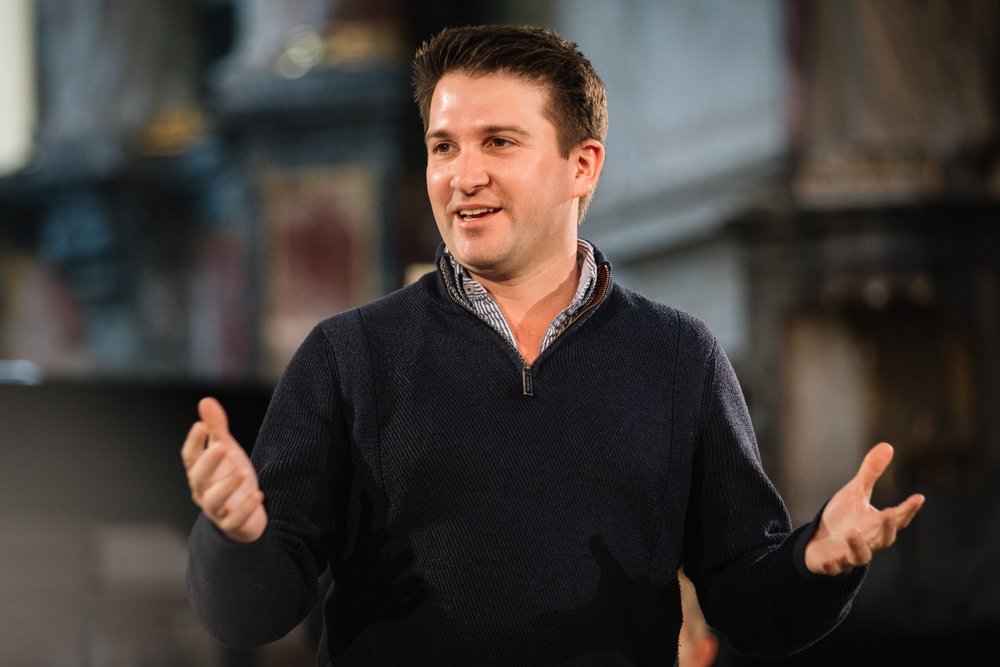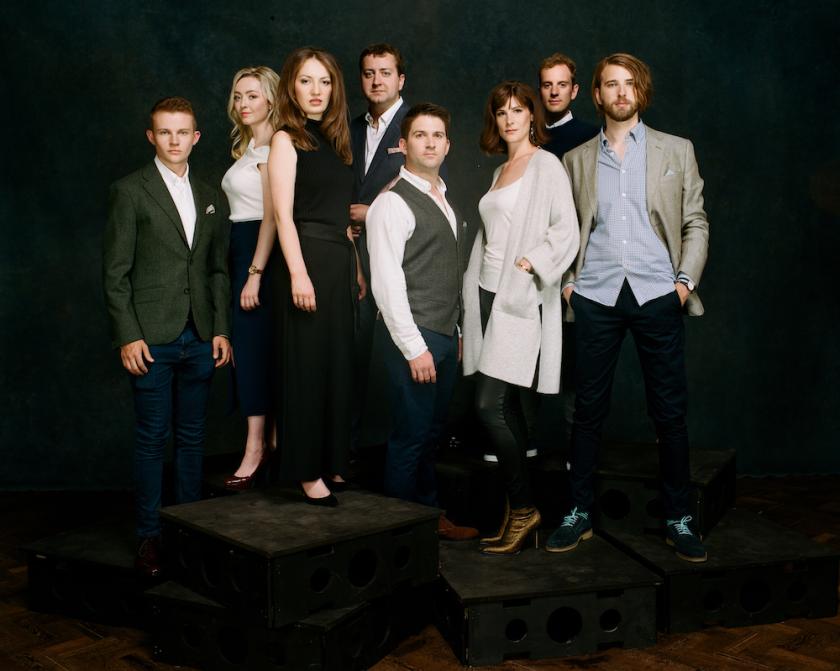The vocal octet Voces8, approaching its 15th anniversary, is a purring musical machine: vocally top-notch, precisely and exhaustively rehearsed, imaginative in repertoire and equally at home in Monteverdi and Duke Ellington. And if the classical items grabbed me more than the kitsch swing numbers they ended with, there is no denying the whole concert was put together with panache and musical excellence.
Voces8 perform more than 100 shows a year together and their sheer familiarity with each other shines through. They are very tight – even their bowing is perfectly synchronised. The spoken links between items – all the singers get their turn – are well-grooved and perhaps a little cosy, but the group clearly know their audience and every little joke got its due titter. If I had a quibble – and it is difficult to find one – it was that I missed a bit of grit in the well-oiled motor: I wanted something surprising or challenging amid the slickness and efficiency. At times it was perhaps a bit soulless.
But the performances were never less than excellent. The best of the first half were the three madrigals from the Elizabethan madrigal collection “The Triumphs of Oriana”. Mundy’s “Lightly she whipped o’er the dales” had lithe counterpoint, the voices overlapping and conversing, culminating in short homophonic passages like a picture coming into focus. There was interesting interplay between the female upper voices and male alto Barnaby Smith (pictured below), whose edgier tone cut through effectively. Weelkes’s “As Vesta was from Latmos hill descending” had a delightful energy, picking up the scurrying musical imagery of “running down” and soprano Andrea Haines left suddenly “all alone”, to her mock surprise.
 In a religious sequence, Rachmaninov’s “Bogoroditse Devo” began with a veiled sound, the group showing astonishing breath control in taking the long phrases so slowly. The central section blazed without blaring before receding again, and the only question-mark was the (for me) slightly indulgent ritardando at the end. Jonathan Dove’s “In beauty may I walk” was the only time in the evening I felt the ensemble battling the Cadogan Hall acoustic, in a piece that is better suited to a big church.
In a religious sequence, Rachmaninov’s “Bogoroditse Devo” began with a veiled sound, the group showing astonishing breath control in taking the long phrases so slowly. The central section blazed without blaring before receding again, and the only question-mark was the (for me) slightly indulgent ritardando at the end. Jonathan Dove’s “In beauty may I walk” was the only time in the evening I felt the ensemble battling the Cadogan Hall acoustic, in a piece that is better suited to a big church.
The half ended with Britten’s “Hymn to St Cecilia”, on a text by WH Auden. In a big-boned performance explored the range of Britten’s textures and gave the stanzas space to breathe. There were fine solos by Andre Haines and bass Jonathan Pacey, and the one moment of uncertainty of pitch was as surprising as it was brief.
The second half began with a stunning sequence from Monteverdi’s sixth book of madrigals. With the group reduced to five seated singers, the sombre tone and dark tessitura was gripping, hushed moments giving way only occasionally to impassioned climaxes. Monteverdi’s harmony has moments of eye-opening dissonance, but the main sense was of bleakness, delivered with utter sincerity by the singers.
After that we were into King’s Singers/Real Group territory, with a series of non-classical numbers ranging from Ben Folds’ lush love song “The Luckiest” – featuring a touching solo by tenor Blake Morgan – to the cheesier “Sway” and “Ain’t that a kick in the head”. The arrangements, mainly by long-time arrange Jim Clements, are undoubtedly witty and imaginative, but I felt there were too many of them and that what should have been a little light relief at the end of the programme accounted for nearly a quarter of the running time.













Add comment